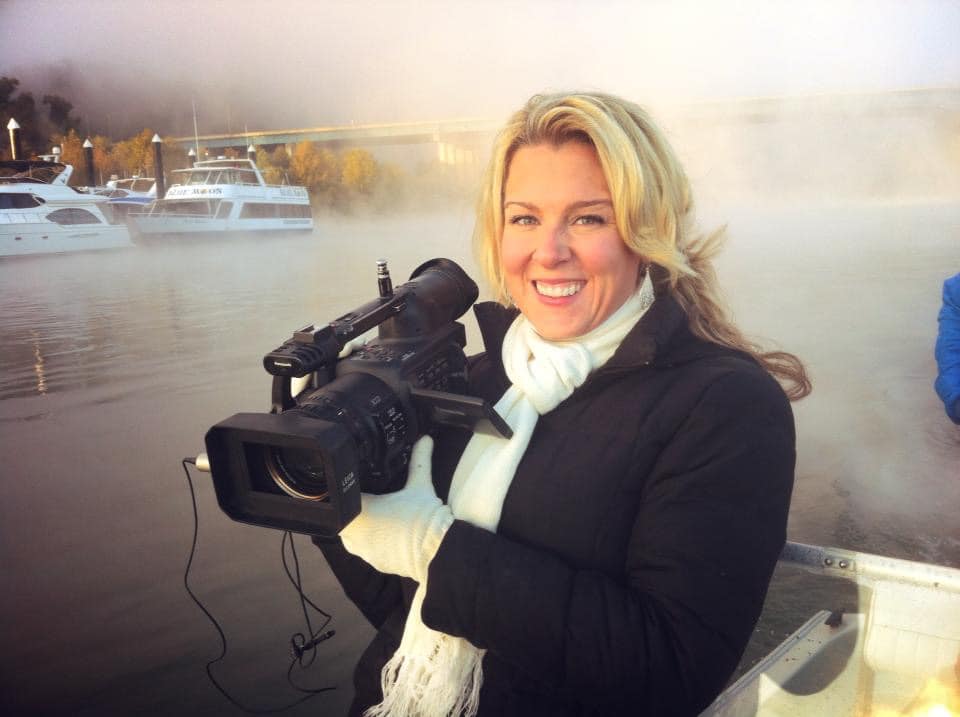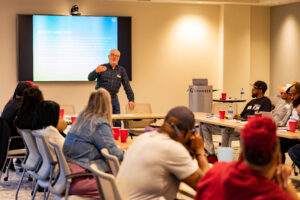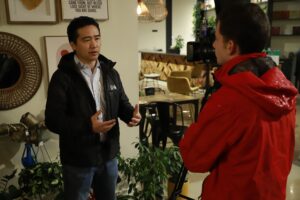Andy Santoro of WDEF News-12 recently transitioned from her role as a general assignment reporter to now serving as host of Let’s Chatt, a midday news show that often spotlights the diversity of local businesses. Santoro is a mom to two teenage boys and has a heart for Chattanooga nonprofits, serving survivors of sex trafficking, pregnant women in crisis, and children in foster care. Santoro grew up in Annapolis, Maryland and has been with Channel 12 since 2021.
TREND: So how did you end up in broadcast news?
Santoro: Believe it or not, in 2011 I was a guest on Local-3 Plus You, talking about some pressed flower art I’d made. Julie Edwards and Jed Mescon just seemed to be having the time of their lives on air; it was fun to watch them and I thought to myself, “What a cool career!” At the time I was a stay-at-home mom, and I literally went home and googled, “How do you become a TV news anchor?” My then-husband had left the Navy to come here and work for TVA. I looked up what universities near us offered journalism degrees, then I called UTC and asked to transfer all the undergraduate credit hours I’d earned 10 years earlier. After I completed my degree, I networked my way to a part-time job at channel 9, and later full-time at channel 12.
With Let’s Chatt, I’m now in the type of role that got me interested in TV news to begin with, hosting or anchoring a daytime show. The job is a happy one, and I’m the happiest I’ve ever been professionally. But to get a job like this requires having had that foundation of reporting experience.

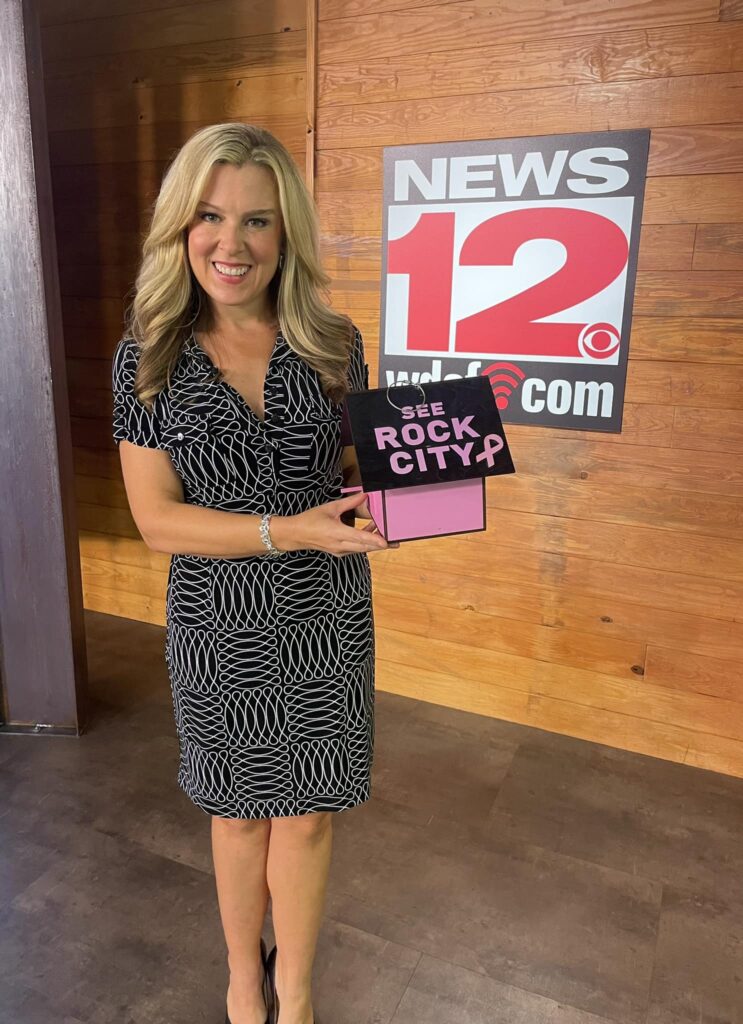

TREND: Many people perceive TV journalism as glamorous. What would you say are the best and worst parts of the job?
Santoro: As a reporter you’re outside in the elements, rain or shine, and at Channel 12 you’re a multimedia journalist, meaning you have to carry all your own equipment around and do all your own video editing. And you’re typically only ever on-camera for about 45 seconds total (the front and end to your story). Reporting can be gritty, even dangerous and scary … plus a lot of bad weather.
One of the best parts of the job is knowing you represent a media outlet and have a microphone, and that public officials and other leaders want to speak with you to help get the word out. To have that microphone and represent a news outlet, to be able to speak with important people who have an important message to share, is a really cool and exciting opportunity.
TREND: Have you had any embarrassing on air moments?
Santoro: Once I was on-camera doing a standup for a story about a violent crime, and the graphic that the production team had up on the studio monitor behind me was the wrong one to accompany what I was saying, it was like a puppy dog or something. I’m reporting on a deadly serious event and the audience at home is seeing a puppy dog.
TREND: What are some of the most impactful stories you’ve gotten to work on?
Santoro: Foundation House Ministries takes in pregnant homeless women, many of whom are struggling with addiction, and provides them with two years of home and on-the-job training. They help women to achieve sobriety, and even fight for mothers to regain custody after many of them have lost their parental rights because of addiction. Foundation House pays the court costs, helps to prove mothers’ sobriety to the court, and works with the Drug Court to further assist these women in charting a new path.
TREND: Since you’ve moved here from Maryland, what positive changes have you seen in this area? What do you think we still need to work on?
Santoro: It’s very exciting how Chattanooga has managed to brand itself as an outdoors city, to capitalize on what we have to offer with outdoor recreation and access to nature. The same thought applies to our success as “Gig City.” My husband’s work is based out of Baltimore, and even compared to the broadband he’s experienced in a major northeastern city, he prefers remote work here in Chattanooga because of the quality of the Internet service.
As a reporter, I covered a lot of terrible incidents of crime, spoke to witnesses and victims of a lot of different kinds of crime. Crime and poverty, disparities between our more and less affluent communities, all need to be addressed. How can we connect residents who live just down the street in more affluent communities to what’s happening, help them to open their eyes wider to the suffering of our neighbors and give back?
TREND: Who are some people you’ve sought out for advice or help throughout your career journey?
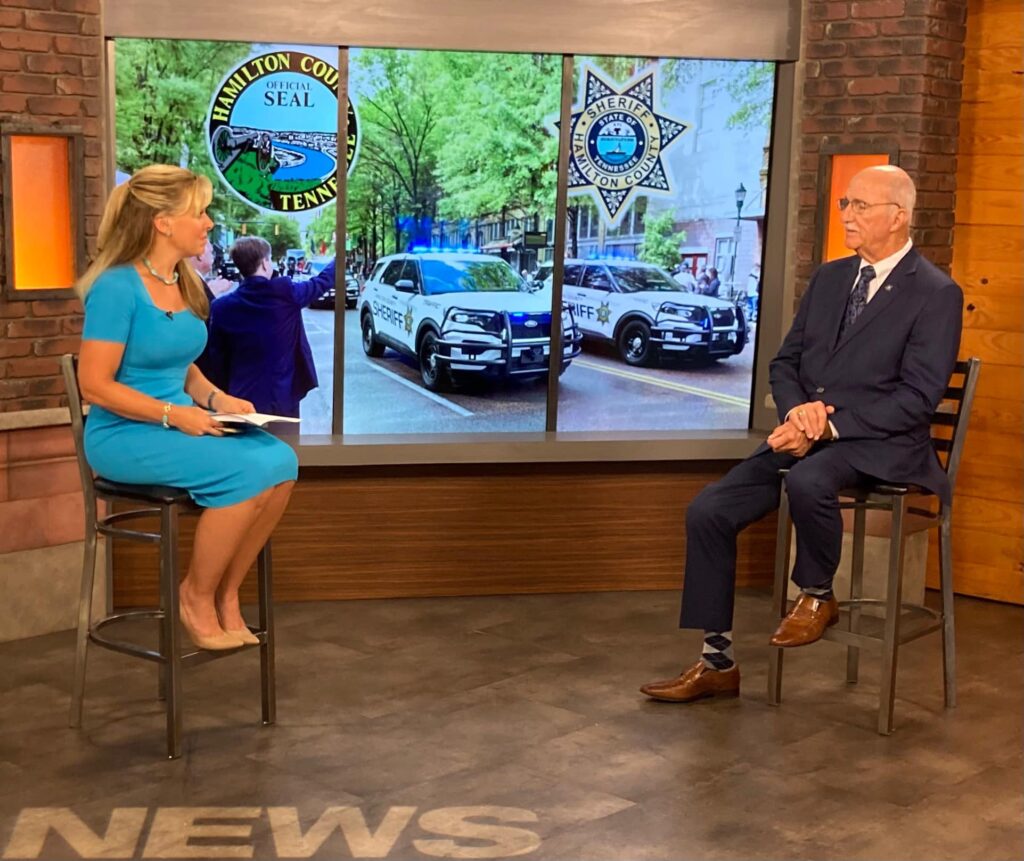
Santoro: My undergraduate advisor at UTC, and since I’ve been in broadcast, my news directors have all driven me. I’ve also leaned on other reporters for advice.
TREND: What’s the best professional advice you could give to a younger reporter, or someone who’s just starting out and looking for an opportunity in broadcast?
Santoro: Don’t be afraid to work hard, network, and show interest to your news director. Demonstrate unrelenting enthusiasm and eagerness to learn. That will hopefully be noticed and rewarded with opportunity, but it won’t happen overnight. It could take many months, of going above and beyond, but there’s no alternative. Because I went back to school to get a journalism credential in my 30s, I was just hungry to be given a shot. I showed up at work even on my days off, I job-shadowed for different roles around the station to learn how the news gets made. I was just so eager to learn and fortunately someone noticed.
